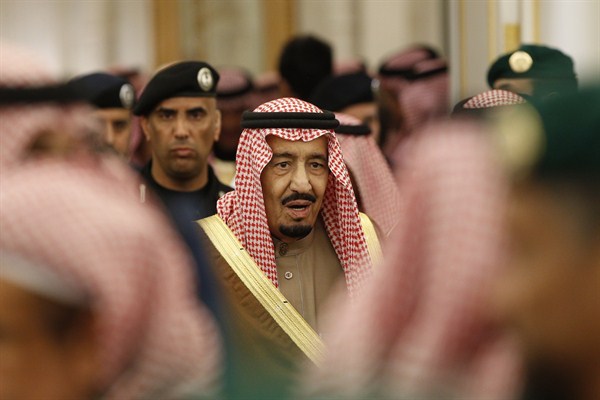The release of tens of thousands of diplomatic cables that Wikileaks says it obtained from Saudi Arabia’s Foreign Ministry have added detail and color to long suspected Saudi behavior in the Middle East. Mostly, that means money and how Riyadh wields it.
Samir Geagea, a Lebanese politician who is a vocal critic of Syrian President of Bashar al-Assad—and a staunch defender in the Lebanese media of Saudi Arabia—begged for more money from Riyadh to support his flailing political party and former Christian militia, the Lebanese Forces. The Saudi ambassador in Beirut wrote favorably back to Riyadh that Geagea “expressed readiness to do what the kingdom asks him to do.” Other documents suggest there were negotiations between Saudi officials and their rivals in Egypt’s Muslim Brotherhood to prevent ousted President Hosni Mubarak, a Saudi ally, from going to prison after the 2011 uprising—for $10 billion. Those went nowhere.
Unsurprisingly, the cables show how Saudi Arabia uses its massive oil wealth as a primary diplomatic tool in the region. Its largesse pays for patrons across the Middle East and also shapes Arab media, whether by bailing out struggling television networks in Lebanon in exchange for positive coverage or blocking the broadcasts of Iran’s Arabic-language Al-Alam channel.

